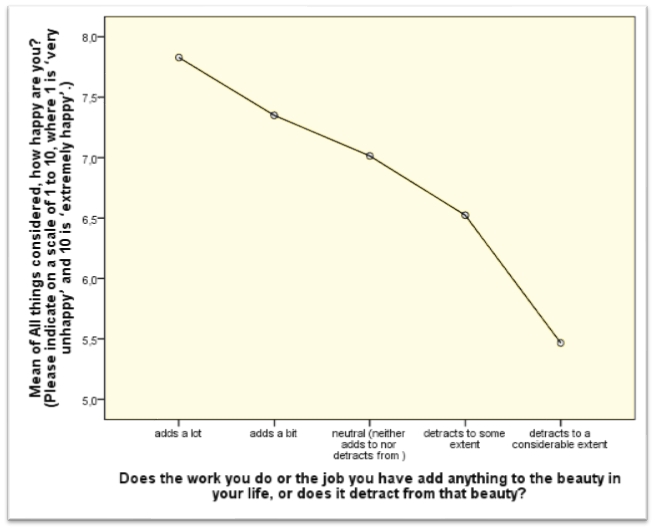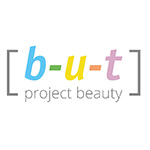We tend to think of beauty as a concept belonging to the private domain. It describes an experience we have when we look at art or at nature (some fellow human beings included), when we visit churches, or when we listen to sometimes life-changing music. It is a uniquely private phenomenon that gives rise to deeply human emotions. So, what can beauty possibly have to do with organizations? After all, isn’t the debate about what constitutes a healthy and happy organization already complex enough? Well, maybe it is, but it seems that ‘beauty,’ a wonderful but complicated concept, does play a role in the way we interact with the jobs we have or, more generally, with the work we do. So we better stop and have a look at what is happening here.
From an instrumental and obvious point of view, it’s crystal clear that organizations are into beauty. Calculations about beauty are, for instance, an important marketing argument, e.g. “does the advert or the product look good?” And why else would graphic and product design be creative business disciplines? Beauty seems to play a role on the level of our subconscious: we are inclined to react to it even when we are not aware of it, and this is of course a commercial ‘window of opportunity’. But the connection between organizations and beauty is much more layered than just this economic surface strategy.
“Does the work you do or the job you have add anything to the beauty in your life, or does it detract from that beauty?”
In Project Beauty, the survey that focuses on the experience of beauty, we ask a diverse set of questions, one of which specifically looks at its relationship with work: “Does the work you do or the job you have add anything to the beauty in your life, or does it detract from that beauty?” The term ‘beauty’ in this formulation does not just denote its seductive capacity, but instead encapsulates its broader, evaluative sense: it seeks to reflect to what extent our professional activities add to or detract from what makes life worth living. It aims to connect what we do at work to what we might also call a feeling of purpose in life. It shows how the way we earn our money reflects who we feel we are and if we feel our profession matches our identity.
Looking at the result of the latest surveys in the five EU countries where Project Beauty has thus far been conducted, we find that over 45% of the population has a job or does work that adds to the beauty in their lives, whether that be by a lot or a little, while roughly 12% states that they suffer in this area. The rest are neutral about the role of beauty in their work life balance.
When we analyze the outcomes by country, we see some remarkable differences. For example, whereas Germany, Austria and the Netherlands report a similar level of meaningfulness to their occupations, in the UK workers are significantly less positive about the extent to which their professions are life-fulfilling.
“…. there is a serious connection between one’s level of well-being and the job one does.”
What’s more, these outcomes strongly mirror the respective reported levels of overall happiness in these countries, which means there is a serious connection between one’s level of well-being and the job one does. Finding work that is ‘in sync’ with what makes you tick has a positive impact on your quality of life. People who manage to do so (i.e. ‘my work adds a lot to the beauty in my life’) have a happiness score of almost ‘8.0’ out of 10.0. This figure stands in sharp contrast to those who struggle to find fulfillment in their profession: they rate their level of happiness with a mere 5.5.

One could of course argue that there’s a difference between asking how happy people are with their work and looking at the extent to which the work they do adds to the beauty in their lives. Raising this question has everything to do with the complicated bond between these two high-level concepts. Clearly, the ability to be happy is strongly connected to our capacity to see beauty in the world around us. But, having said this, we immediately see a glimpse where happiness and beauty begin to diverge: the former defines an emotion, the latter a much wider phenomenon that – if dealt with in the proper way – can give rise to this emotion. Therefore, talking about beauty in the context of organizations could indeed open up a new angle in the debate about how the work we do contributes to what some even see as the purpose in our lives: a sensation of belonging.
– – – – – – – – – – – – – – – – – – – – – – –
Additional information
- The questionnaire that is at the heart of the project can be found here.
- If you want to stay updated about the project: follow us on Facebook.
- So far the core survey of Project Beauty has been used for national representative surveys in five European countries. Recently we also started offering an in-company version of this inspiring project. In case you are interested to learn more about applying Project Beauty within your organisation: please contact us.
- Project Beauty was made possible by the generous support of various companies (Dynata, Blauw Research, DRG, Datum Internacional) and numerous wonderful individuals.
- The development and growth of Project Beauty is sustained with the ‘Seeking Beauty’ gifts: a series of fully personalized (e-)books, based on the core questionnaire of the project, and available for private and corporate gifts. Do you like our venture and are you interested in supporting us: feel free to try out these gifts or contact us!

Leave a Reply
You must be logged in to post a comment.